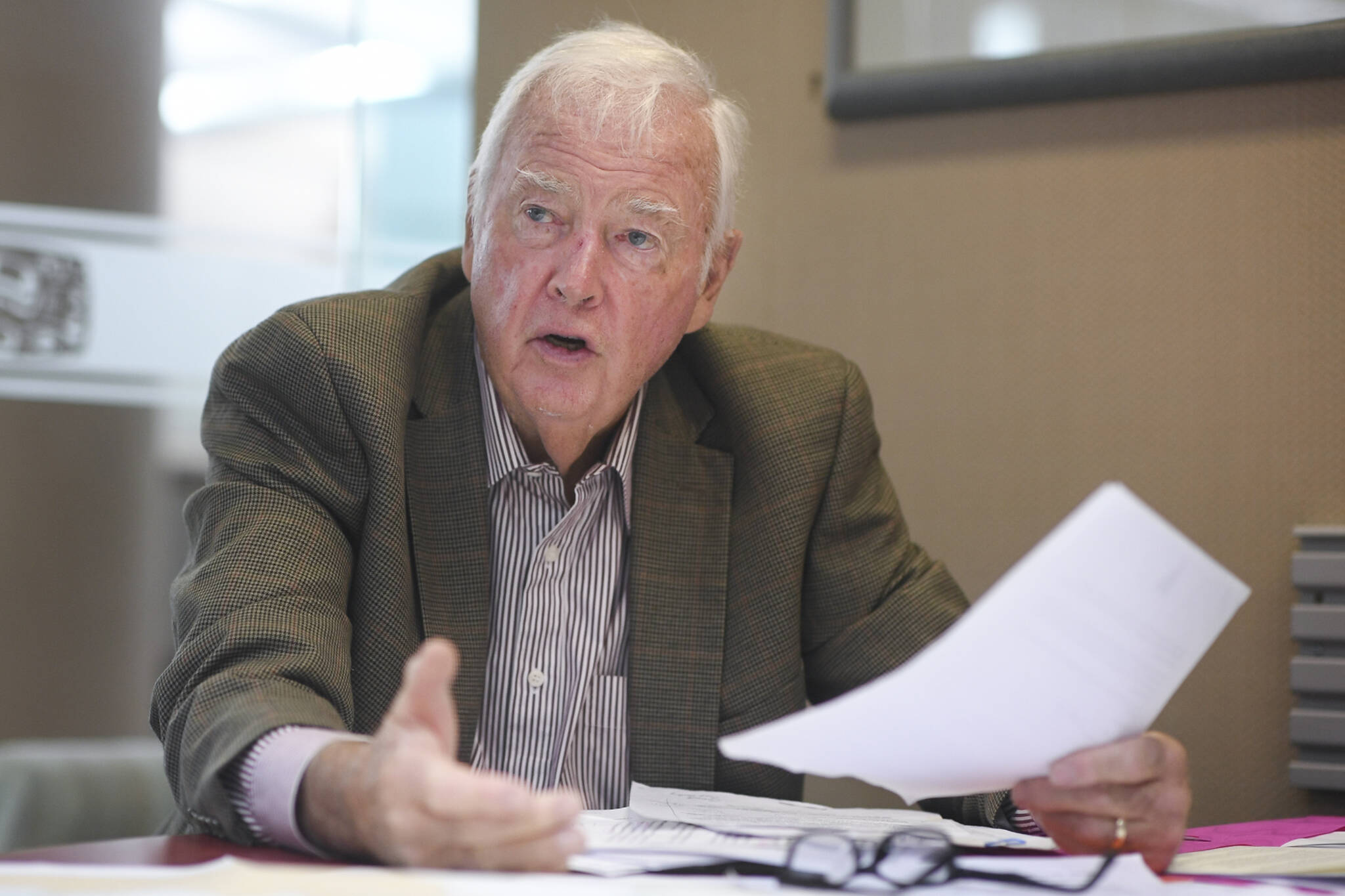In 1920, over a hundred years ago, Congress passed the Merchant Marine Act. The legislation mandated that persons or goods that are transported between any United States ports must be carried in vessels built in the United States and owned and crewed by U.S. citizens. Today, Alaska is dependent on the few U.S.-built ships carrying supplies from Washington state to Alaska. The cruise ship fleet cannot carry passengers from one port of Alaska to another. They must stop at foreign or Canadian ports on their route.
Exceptions to the Jones Act have been granted by our government. For example, the movement of LNG from the Gulf Coast currently moves in a former French built tanker. The Jones Act exception includes only tankers foreign built before 1996 were reflagged for service to Puerto Rico. Another exemption was granted to Alaska at the request of our then Gov. Hickel, who leased the ferry Wickersham because the three existing Alaska ferry vessels were inadequate to meet the growing demand for inter-Alaska transportation. The most recent exemption was negotiated by our Alaska delegation during the COVID epidemic, which waived requirements that foreign cruise lines stop at Canadian ports while transiting in Alaska waters.
The original Jones Act became law primarily through the efforts of Sen. Jones from the state of Washington. About that time, the Transcontinental Canadian Railroad System had reached the port of Prince Rupert, British Columbia. Concern in the Seattle/Tacoma area was the likelihood that with the completion of the railroad, B.C. would be the major source of supplies to Alaska, particularly the communities in the SE part of the state. The town of Ketchikan, Alaska is only 80 miles north of Prince Rupert. This could make the supplies of goods and services traditionally from Seattle and Tacoma unable to compete with goods shipped on the Canadian National Grand Trunk railroad.
The Jones Act was seen as a boon to ship building in the U.S. as well as maritime jobs. That proposed opportunity never really turned out as intended. Since the Jones Act became law, we’ve seen very little stimulus in U.S. shipbuilding. The SS United States was the last major U.S. passenger vessel of any size built in our country. That vessel sat in Philadelphia for several decades and is soon due to be sunk as a man-made reef off the Atlantic coast area.
Closer to home it’s ironic as we contemplate marketing our Alaska LNG in the future, we can get Canadian gas in foreign built tankers into our Alaska ports in Prince William Sound, but we cannot export proposed Alaska gas because we have no U.S.-built LNG tankers of any kind available.
In view of the tension currently between U.S. and Canada over trade tariffs that we have levied against Canada, it might be an opportune time to terminate the shadow protection that the Jones Act provides by terminating the act. In so doing, it would open water transportation between the U.S. and Canada, which currently under the Jones Act constricts our relationship.
Such an action would appear to benefit both our countries, contrary to the current protectionist Jones Act. Perhaps as an alternative Alaska, along with other states, could have the choice of opting out of the Jones Act. Another suggestion was to amend the Passenger Service Act until the issue is finally resolved. This could allow the acquisition to include purchasing and operating foreign ferries on the Alaska mainline routes.
Frank H. Murkowski is the eighth governor of Alaska and former U.S. senator.

